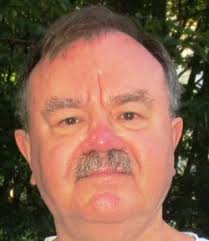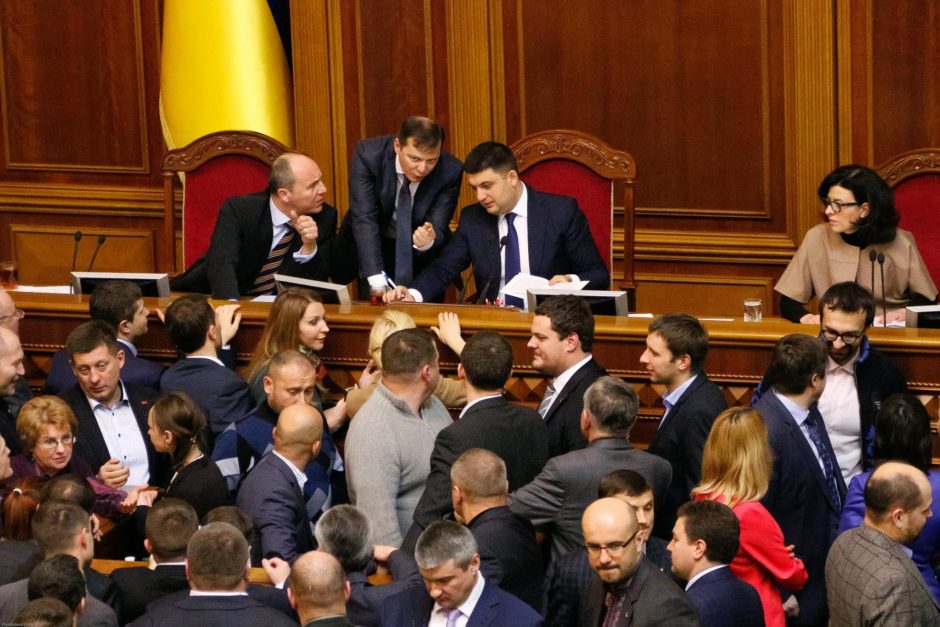Thanks, in part, to people like Canadian Foreign Minister Chrystia Freeland, we have a picture of Ukraine as a plucky democracy, fending off the Russian bear. But you may not hear about the following from her, as she continues to provide total support to the Ukrainian regime.
Ukrainian war hero-turned-lawmaker Nadiya Savchenko came under fire last March after saying during a television interview that Jews held disproportionate control over the levers of power in Ukraine.
More recently, opposition politician Yulia Tymoshenko was forced to apologize after being filmed laughing at an antisemitic comedy act at a gathering of her Fatherland party.
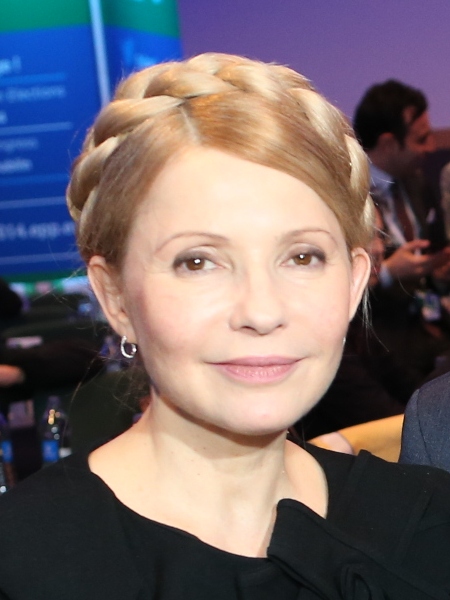
Volodymyr Viatrovych, the director of Ukraine’s the state-run Institute of National Remembrance, accused Jewish activist Eduard Dolinsky of fabricating antisemitic incidents for money.
Though Prime Minister Volodymyr Groysman is Jewish and President Petro Poroshenko is supposedly Jewish on his father’s side, Ukraine continues to whitewash its very problematic history of antisemitism, including the massive collaboration of many Ukrainians with the Nazis in World War II.
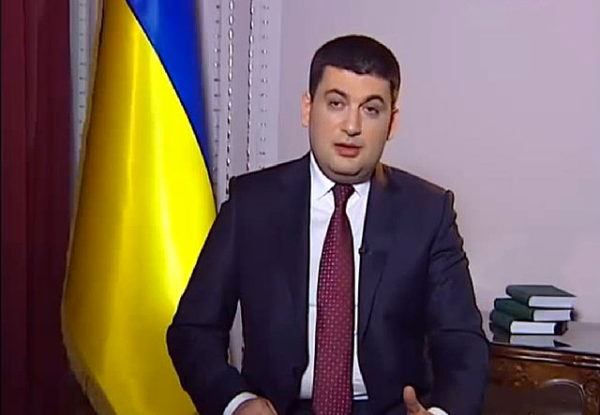
Ukraine’s parliament in 2015 passed a law that, in effect, glorifies partisans affiliated with the Organization of Ukrainian Nationalists (OUN) and its military wing, the Ukrainian Insurgent Army (UPA), as freedom fighters.
The law states that those who “publicly exhibit a disrespectful attitude” toward them will be prosecuted.
What is not mentioned is their xenophobic, antisemitic ideology, which described Jews as a “predominantly hostile body within our national organism,” or that they collaborated with the German occupation authorities.
Indeed, veterans of the UPA were invited to a VE-Day celebration in Kiev and were openly cheered by spectators.
One group of academics wrote an open letter to Poroshenko, regretting that the new law would make it a crime to question the legitimacy of an organization that slaughtered tens of thousands of Jews.
Nazi collaborators Stepan Bandera, Roman Shukhevych and other nationalists accused of complicity in the murder of Ukrainian Jews have received honors from state authorities for their fight against Russia.
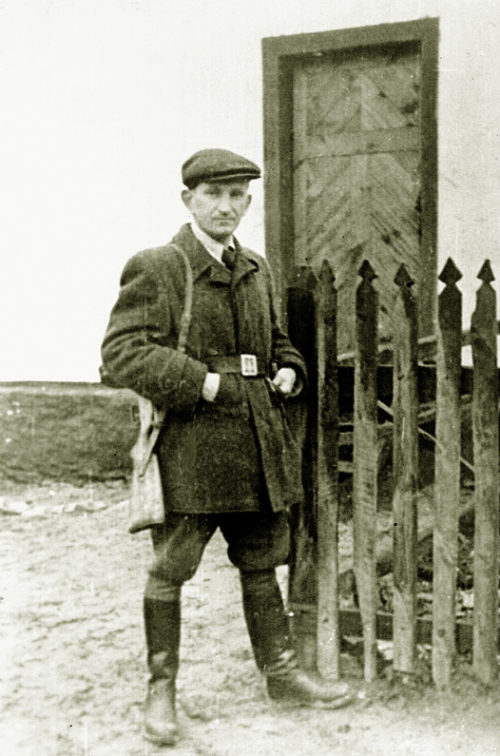
On January 1, a march through Kiev in honor of OUN leader Stepan Bandera rang out with cries of “Jews out.”
Since 2015, numerous streets have been renamed after OUN and UPA members. They are viewed as heroes because they fought against the Soviets, a struggle that some believe has echoes in the fight against Russia today.
Many Jews fear that the government will never repudiate such murderers for fear of provoking a far-right backlash.
In June, Lviv held a “Shukhevychfest,” an event named after Shukhevych, featuring music and theatre shows. A celebration of the 110thanniversary of his birth also took place in Kiev.
He was a leader of the OUN and later of the UPA. Prior to commanding the UPA, Shukhevych was commander of a Ukrainian battalion called Nachtigall. On June 30, 1941, they began a series of pogroms during which approximately 6,000 Jews were murdered in Lviv.
Yet Vyatrovich recently described Shukhevych as an “eminent personality,” and has defended the displaying in public of the symbol of the Galician SS division. Responsible for countless murders of Jews, Nazi Germany’s most elite unit was comprised of Ukrainian volunteers.
Also, earlier in 2017, the western municipality of Kalush, near Lviv, was sued for deciding to name a street for Dmytro Paliiv, a commander of the 14th Waffen Grenadier Division of the SS, also known as the 1st Galician, comprised of Ukrainians.
Displaying Nazi symbols is illegal in Ukraine but the Galician SS division’s symbol is “in accordance with the current legislation of Ukraine,” Vyatrovich has said.
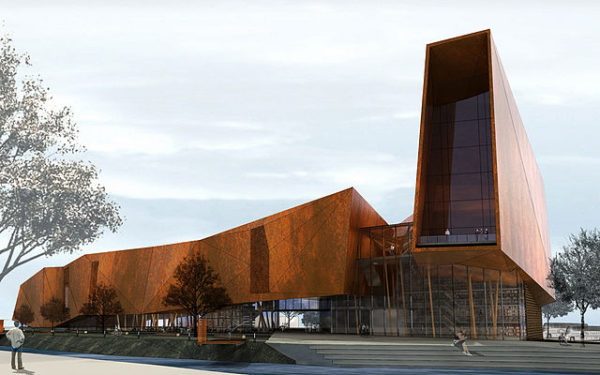
Desecration of Ukraine’s Holocaust sites and memorials has also become a problem. At the ravine known as Babi Yar, in Kiev, in September 1941, the Nazis killed over 33,000 Jews.
Babi Yar’s commemorative memorial was vandalized nine times in 2015 and 2016, with painted swastikas at the site. More recently, a Holocaust memorial in the western Ukrainian city of Ternopil was also painted with a swastika and SS insignia.
Earlier antisemites are also being honored. A statue of Symon Petliura, a Ukrainian nationalist who is blamed for the murder of tens of thousands of Jews during the Russian Revolution, was unveiled in October in Vinnitsa. The city already has a street named for him.
The estimates of Jews killed in pogroms during Petliura’s 1918 and 1921 reign, during which they were responsible for 493 out of the recorded 1,236 pogroms and other violent incidents against Jews in 524 Ukrainian towns during the Russian Revolution, run from 35,000 to 50,000.
In the city of Uman, a major pilgrimage site for Breslov Hassidic Jews, a monument recently appeared commemorating Ivan Gonta, an 18th-century Cossack involved in a massacre of Jews, Poles, and others.
As the historical revisionism continues, Ukraine is definitely heading in the wrong political direction, Freeland’s advocacy of Ukraine notwithstanding.
Henry Srebrnik is a professor of political science at the University of Prince Edward Island.
